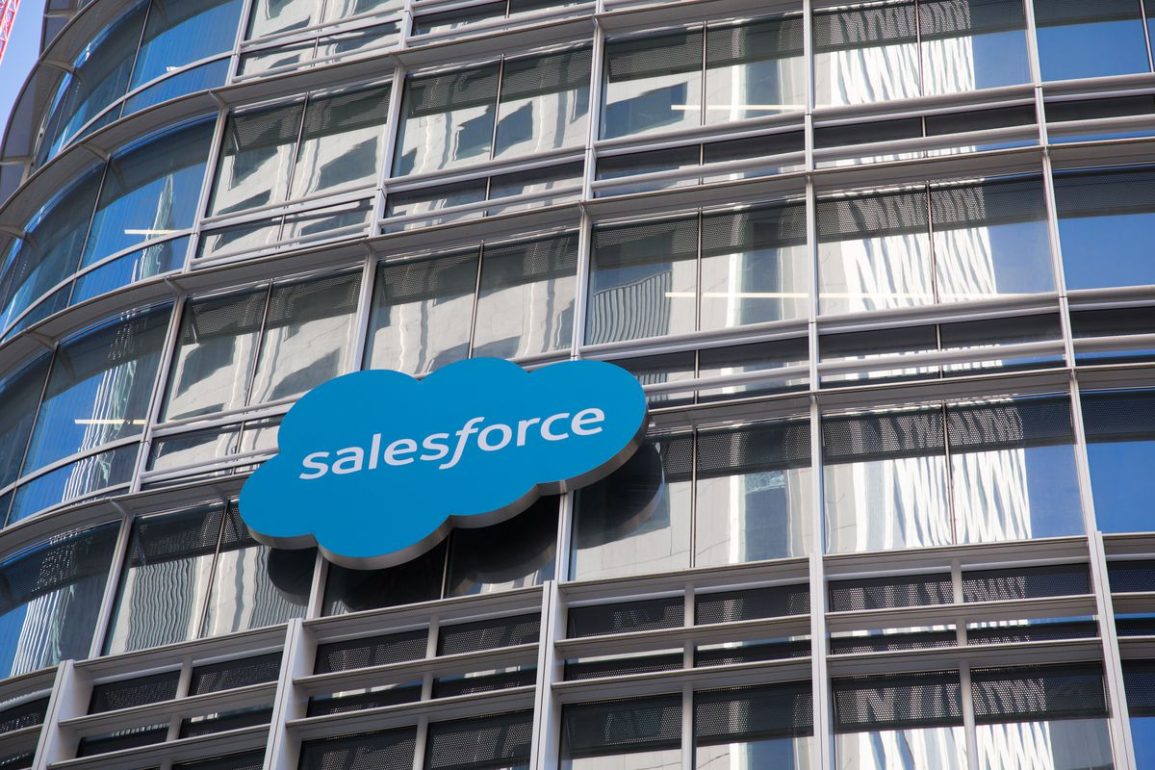“Pulse for Salesforce” brings AI-powered insights to Sales Cloud, offering businesses streamlined decision-making and enhanced sales performance
Salesforce is set to expand one of Tableau’s prominent AI features to its core customer relationship management platform, marking one of the most significant integrations since acquiring the data visualization company five years ago.
On Friday, the San Francisco-based company announced the launch of “Pulse for Salesforce,” a version of Tableau Pulse that will bring AI-powered charts and insights directly to Salesforce CRM users. Initially, the feature will be available through Sales Cloud, with plans to roll it out across other Salesforce products and platforms in the future.
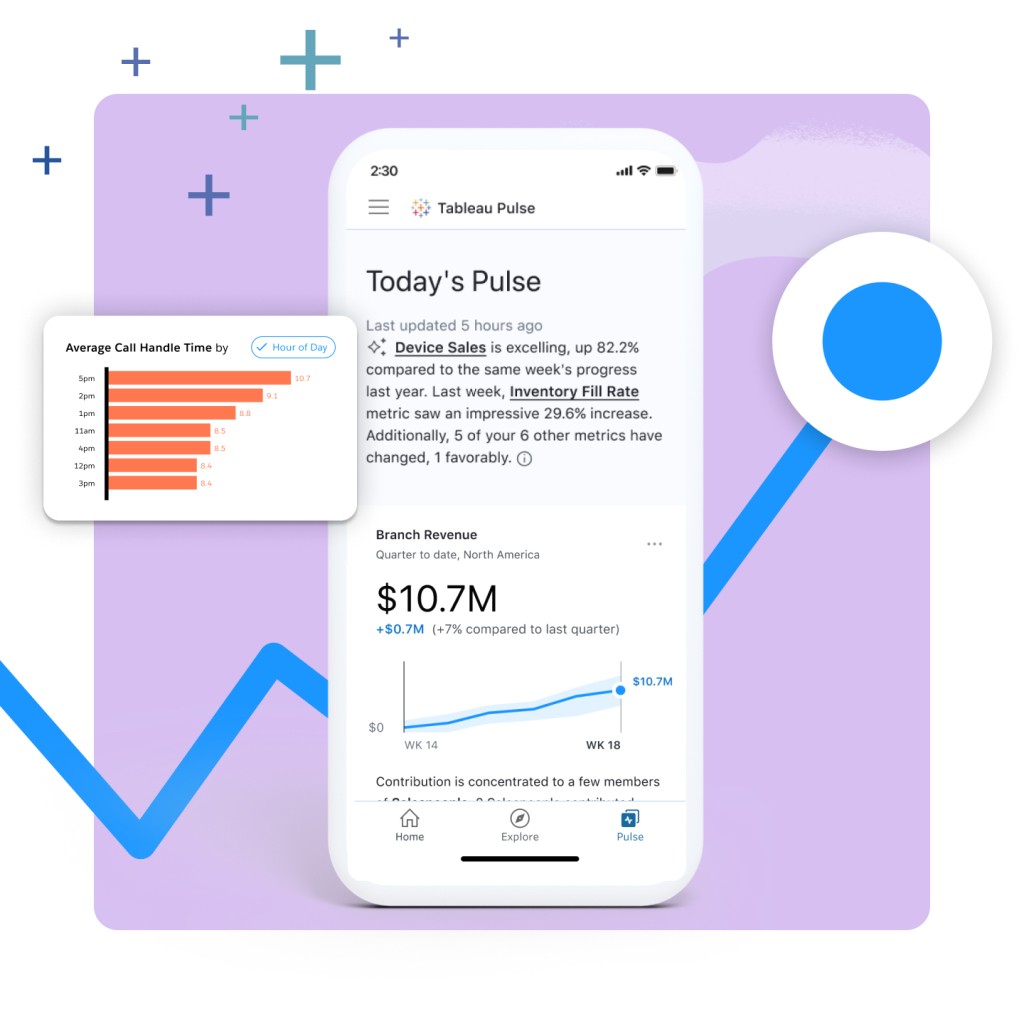
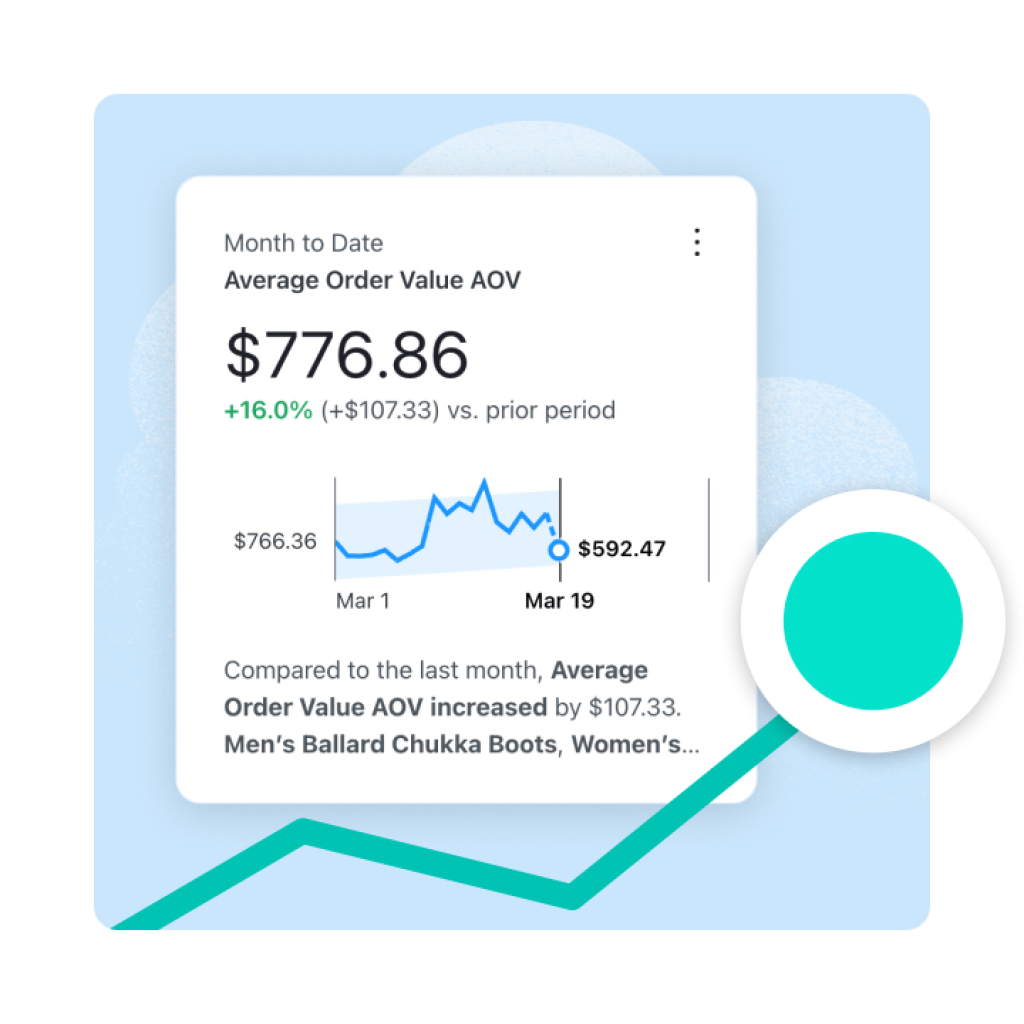
Tableau Pulse, which made its official debut in February, leverages natural language processing and generative AI to help users visualize and interpret data seamlessly. This integration of Tableau Pulse into Salesforce could have a significant positive impact on businesses using the CRM platform. By providing AI-driven insights directly within Salesforce, companies can streamline their decision-making processes and increase efficiency. Sales teams will be able to quickly access and interpret key performance metrics, identify trends, and make data-driven decisions without needing to leave their workflow. The natural language capabilities allow even non-technical users to easily ask questions and gain valuable insights, empowering a broader range of employees to contribute to data-driven strategies. Ultimately, this could lead to improved sales outcomes, enhanced customer relationships, and more agile business operations.
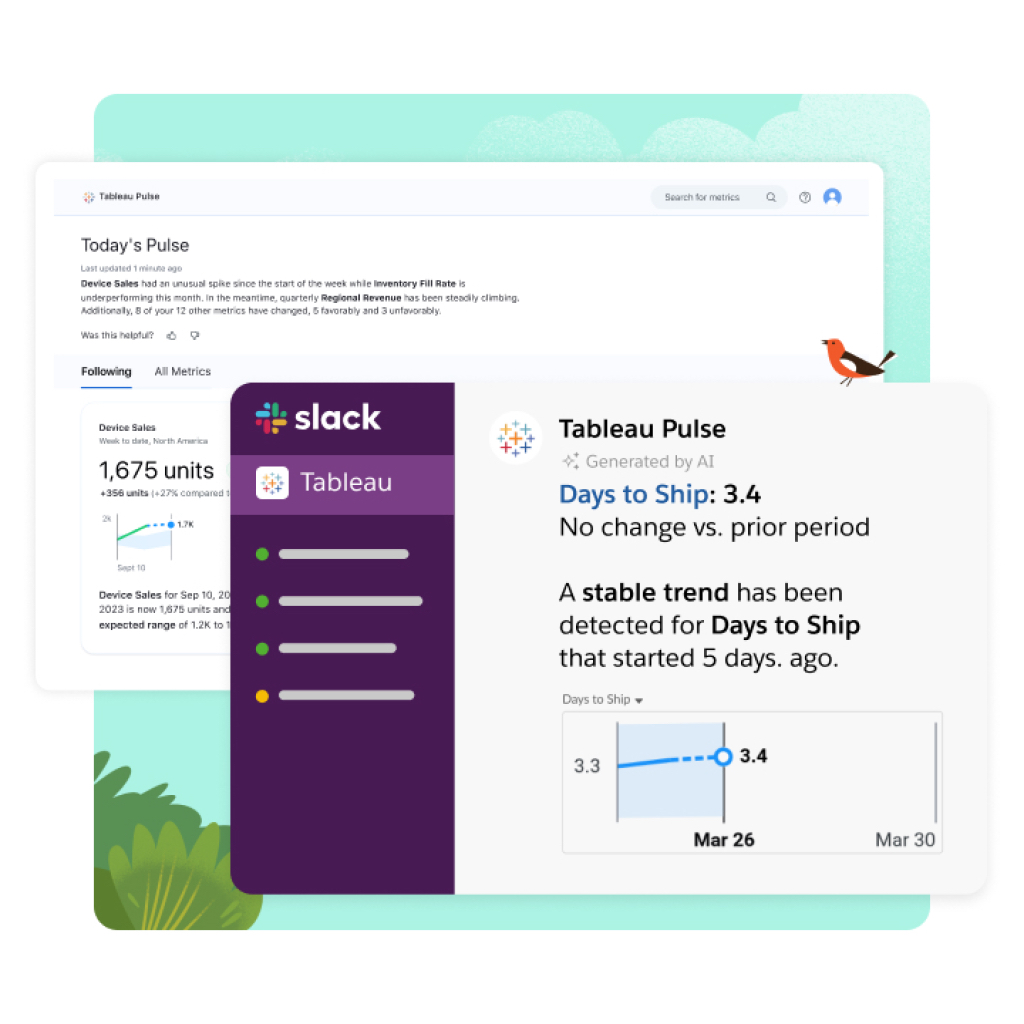
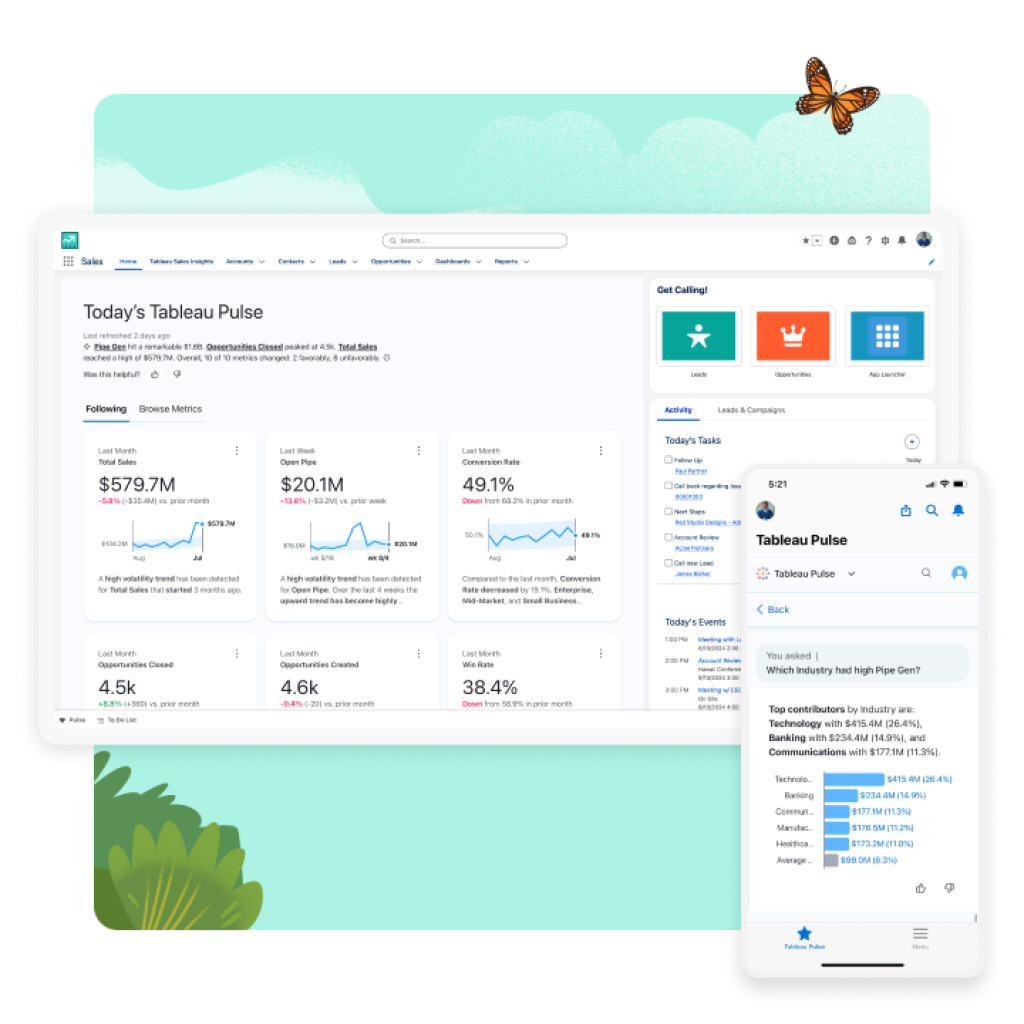
Unlike traditional Tableau interfaces, which require some familiarity with data visualization, Tableau Pulse offers a more user-friendly and automated experience. Tableau’s CEO, Ryan Aytay, emphasized the company’s aim to broaden its appeal beyond its core audience of data analysts and professionals. “We love those folks, and we’ll continue to serve them,” Aytay said. “But why wouldn’t we open it up to more Salesforce customers, as well? So that’s really what it is — we’re becoming more relevant to a larger audience.”
At launch, Sales Cloud integration will include nine pre-built Tableau Pulse metrics, such as win rate, average days to close, total sales pipeline, and conversion rate. Sales reps and managers will also be able to ask questions in natural language to explore trends and key takeaways further.
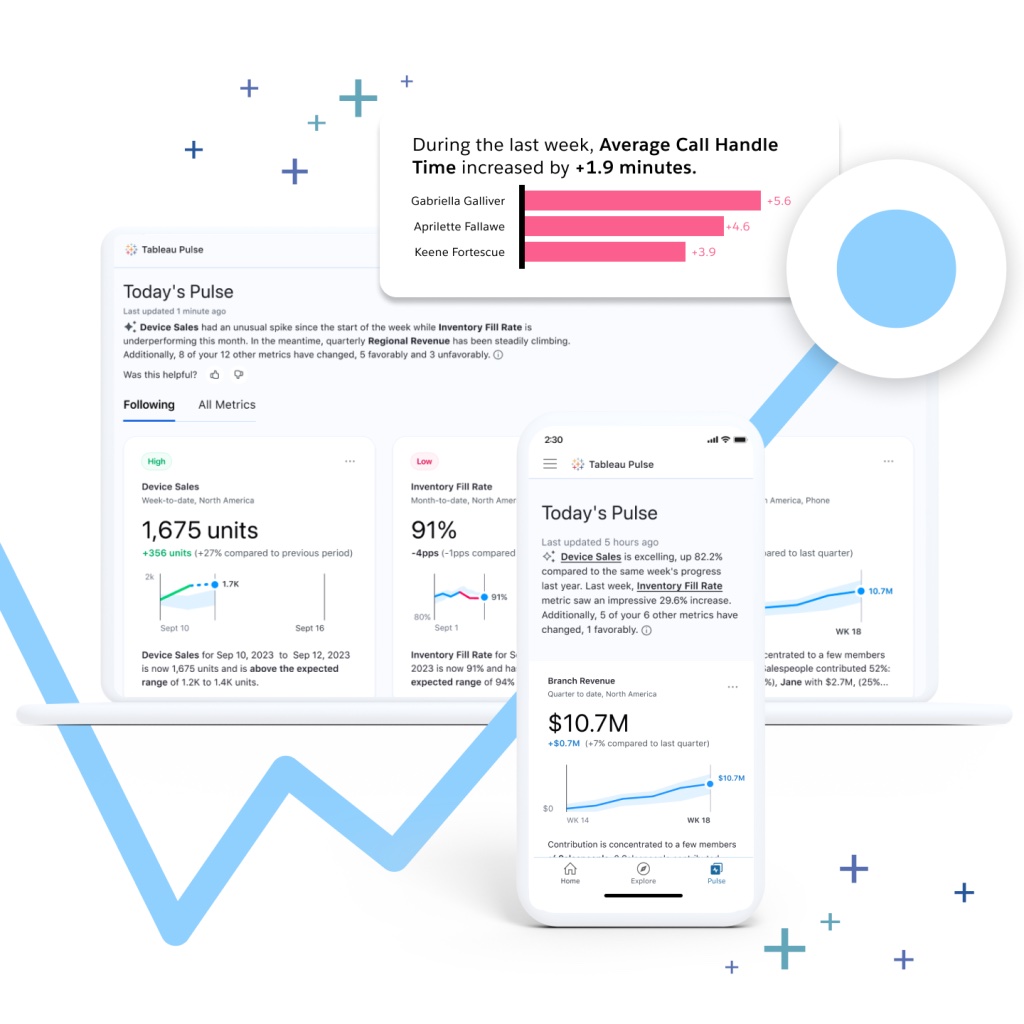
Existing Tableau Pulse customers will be able to connect the service to Salesforce at no extra charge, while new Salesforce customers can purchase Pulse for $50 per user per month for a viewer account. Salesforce emphasized that Pulse is built on its secure AI architecture, Einstein Trust Layer, ensuring robust security, data, and privacy controls.
In the competitive landscape, Tableau faces rivals such as Microsoft, Amazon, and Google, alongside numerous smaller data visualization providers. Despite this competition, Tableau has shown strong performance, with a 16% increase in annual revenue during Salesforce’s 2024 fiscal year and a 21% rise in the first quarter of the 2025 fiscal year. However, Salesforce no longer reports specific revenue figures for Tableau and other acquired companies.
Salesforce acquired Seattle-based Tableau in 2019 for $15.7 billion. Although Salesforce has scaled back Tableau’s Seattle presence, including vacating office space in the Fremont neighborhood, the company reaffirmed its commitment to the region this week. Tableau and Salesforce employees continue to work out of the “Data1” building in Fremont, which serves as a key hub.
“Tableau is a critical and thriving part of our business, and we remain fully committed to our Seattle-based home and employees,” a Salesforce spokesperson said. “Employees have access to a vibrant office environment at our Data1, Plaza, and Bellevue offices where they can connect with colleagues and customers in the area.”
Research firm Gartner has maintained Tableau’s status as a leader in its June 2024 Magic Quadrant report. The report also highlighted Tableau’s improvements in both technology and commercial flexibility. Gartner no longer expressed concerns about customer support, which had been a prior issue that Tableau addressed with its revamped executive team.

Tableau operates under its own executive leadership within Salesforce, a strategy that Aytay noted differentiates the company from competitors like Microsoft, which integrates its Copilot AI technology with its Power BI platform. Gartner’s report also pointed to the increasing competition Tableau faces from major cloud and business application vendors that are enhancing their own data and analytics offerings.
“To effectively compete in the areas of large-scale enterprise reporting and advanced analytics use cases, Tableau needs to strategically refine its market position within Salesforce Data Cloud,” the Gartner report stated.



